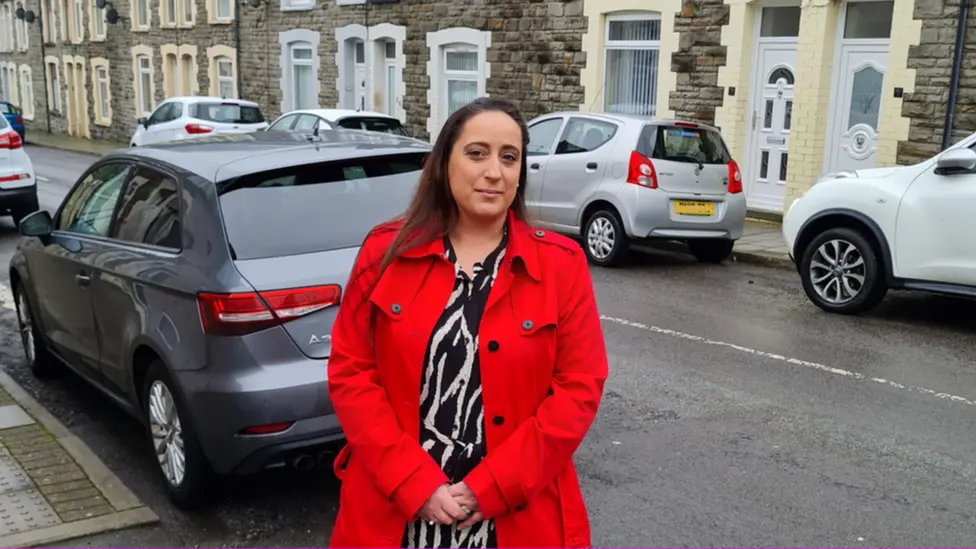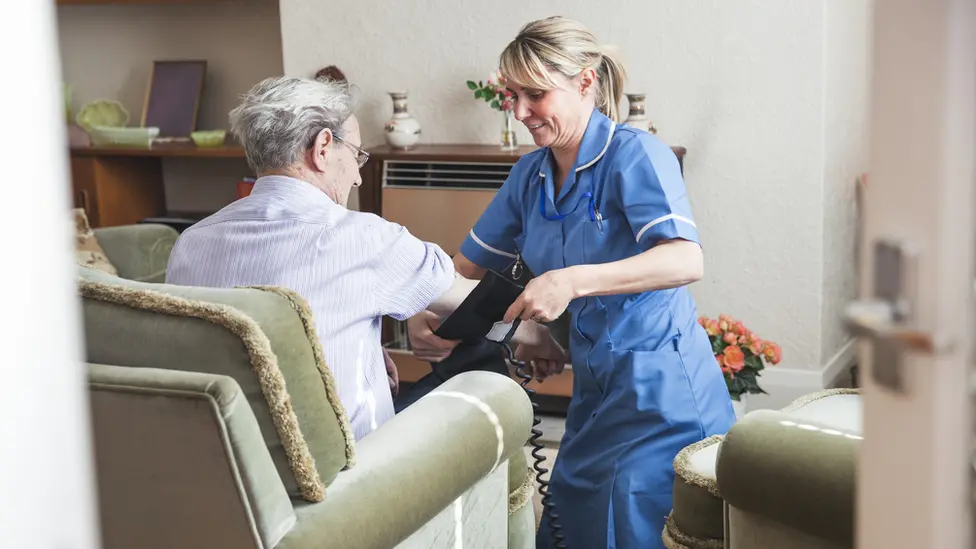Covid: Social care staff in Wales 'exhausted' by pandemic
Social care staff are more stretched now than at any point in the pandemic, the Association of Directors of Social Services Cymru has said.
President Nicola Stubbins said workers were "exhausted" and under "sustained pressure".
At one point in the first lockdown, 15% of council social services staff in Wales were absent due to sickness.
Ms Stubbins said directors were "firefighting", but the pandemic had shown how resourceful the sector was.
She said the NHS would "grind to a halt" without the social care workforce preventing hospital admissions and supporting people to leave hospitals safely.
'We had to play our part'
Andrew James is a domiciliary care worker for Caerphilly council and provides care to older people in their own homes.
He has type 1 diabetes and, two years ago, had a heart attack.
"I had to shield in the beginning for 12 weeks. I've come back and it's worse now than it was at the first wave, but I've got to play my part," he said.
His colleague Hilary Evans, who has asthma, also shielded for three months.
"We couldn't stop thinking about the carers on the front line, working non-stop, and it made us feel guilty so we offered to come back," she said.
"We missed work and we missed our clients and had our part to play."

Seran Wady, who manages their team, said since the beginning of the pandemic, the team had provided an average of 18,459 individual care calls a month.
"Like the NHS, I think we're saving lives. We're doing a lot of work around preventing admissions to hospital for people but also by facilitating discharges from hospital.
"We've responded really well and that's been through the dedication and the determination of the office and care staff."
Other social care workers have had to completely change how they work.
Alwen Evans, a community occupational therapist in Denbighshire, used to visit people at home but only goes out in a crisis now.
"I work from my dining room table and do sessions virtually. It doesn't mean the quality of care has been affected, but it is very different," she said.
"Resilience is wearing thin in health and social care across the board at the moment."
 Getty Images
Getty ImagesThere are about 72,100 jobs in the adult social care sector, which represents about 6% of total employment in Wales. About 19,637 of those are domiciliary care workers.
Most care workers are on the minimum wage - £8.72 an hour for those aged 25 and over.
In 2016, the average annual earnings for those in the adult social care sector in Wales was estimated to be £16,900, compared to the average of £29,200 for all other industries.
Ms Stubbins, who is also the director of social services in Denbighshire, said: "Social care staff are stretched now to a point I've never seen before and at this moment in time, stretched far more than any point during this entire pandemic.
"They are exhausted, but they keep going.
"The pressures of being able to maintain service delivery is becoming more and more challenging and with certain aspects we are only able to cover some critical services - that isn't anything that anybody ever came into this job to do, to have to choose between who you may or may not be able to help."
She said there had been times when there had not been enough staff to provide care.
"I know of examples in my own authority and across Wales where [senior] officers have stepped in to take on different roles. They've rolled up their sleeves, literally, and staffed care homes and other services to keep people safe."
She said numerous roles in social care, including social workers, occupational therapists and those working in domiciliary care, had been hit.
In May 2020, 15% of the local authority's social services workforce had been absent due to sickness, including Covid-19.
Ms Stubbins described a "constant anxiety" while waiting to hear about new cases or deaths - at first in care homes - but since Christmas she said there had been more cases in the community and children's homes.
"We are literally managing day-by-day because we don't know what tomorrow will bring. We're constantly firefighting.
"There's no time to stop, think and try and plan ahead and that's really, really difficult."
